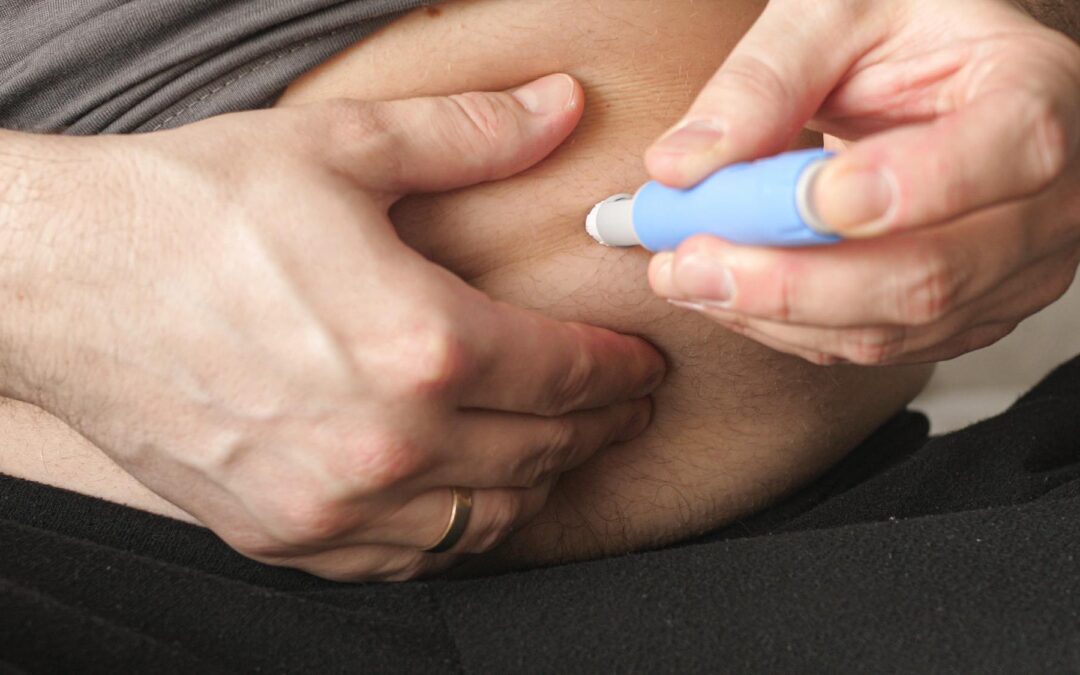Sober Thanksgiving: How to Enjoy the Holiday Without Alcohol
Introduction
Thanksgiving is a time of gratitude and togetherness, making it particularly significant for those experiencing the holiday while in recovery from substance use. The holiday season presents unique challenges as it often involves social gatherings where alcohol is prevalent. For individuals navigating a sober Thanksgiving, these events can be fraught with potential triggers and temptations.
Recognizing the importance of the holiday, it becomes essential to approach Thanksgiving with a mindset focused on sobriety and fulfillment. Setting the tone for a sober Thanksgiving involves planning ahead and embracing new traditions that align with a healthier lifestyle. By doing so, you can create an environment that supports your recovery journey while still participating in the joy and connection that Thanksgiving offers.
Engaging actively in this celebration, without alcohol, reinforces your commitment to sobriety. It’s about finding joy in being present with loved ones and appreciating the many blessings that come with living a life free from substances.
For those struggling with addiction, seeking professional help can be a crucial step towards recovery. Facilities like the Advanced Addiction Center, located in Medford, Massachusetts, offer comprehensive outpatient addiction treatment. They provide the necessary support for individuals to overcome their struggles and reclaim their lives. Remember, you don’t have to suffer through addiction alone; reaching out for help is a sign of strength and an important part of your recovery journey.
Understanding Thanksgiving in Recovery
Thanksgiving has a historical significance that goes back to the early days of American colonists. It represents a time for giving thanks and coming together as a community. For individuals recovering from addiction, this holiday can be a powerful reminder of how far they’ve come and the support systems that help them on their journey.
The Importance of Gratitude in Recovery
The role of gratitude in recovery cannot be overstated. Gratitude helps shift focus from past struggles to present achievements, reinforcing positive behaviors that are crucial for maintaining sobriety. Cultivating gratitude is more than just appreciating what you have; it becomes a vital tool in reinforcing mental resilience, especially for those undergoing addiction treatment programs that provide relief and recovery.
How Gratitude Enhances Mental Well-Being
Exploring how gratitude enhances mental well-being during difficult times reveals its psychological benefits. By fostering an attitude of thankfulness, individuals can combat feelings of negativity or hopelessness often associated with addiction recovery. This mindset encourages looking beyond immediate challenges and recognizing the broader scope of one’s progress, something that can be greatly supported by professional addiction therapy.
Transforming Thanksgiving into an Empowering Experience
Integrating these concepts into your Thanksgiving celebration can transform the holiday into an empowering experience. Emphasizing gratitude not only aligns with the essence of Thanksgiving but also supports ongoing recovery efforts by promoting emotional balance and strengthening resolve against relapse.
Overcoming Challenges During Thanksgiving as a Person in Recovery
Thanksgiving presents unique challenges for those in recovery, where holiday triggers can be especially potent. The festive environment often includes alcohol, which can tempt even the most determined individuals. Understanding these triggers is crucial to maintaining sobriety.
1. Common Triggers and Temptations
Alcohol is frequently present at Thanksgiving gatherings, making it a common temptation. Social pressure from family or friends who drink can also be a significant challenge. Sometimes, simply being in environments associated with past drinking episodes is enough to trigger cravings.
2. Emotional Struggles
The holiday season can evoke strong emotions, ranging from nostalgia to loneliness. For some, these feelings may lead to a desire to seek comfort in substances. Navigating family dynamics can also be stressful, potentially leading to emotional distress.
3. Recognizing Potential Pitfalls
Identifying potential pitfalls before they occur enables proactive management of challenging situations. Preparing responses to offers of alcohol and having a plan for excusing oneself from uncomfortable conversations can mitigate these risks.
Accessing substance abuse resources is another critical component of overcoming challenges during Thanksgiving. Engaging with support groups or speaking with a sponsor prior to gatherings can help reinforce the commitment to sobriety and provide strategies for managing tricky situations. If you’re seeking professional help, consider reaching out to Advanced Addiction Center in Massachusetts, where taking that first step toward overcoming addiction can be transformative.
Practical Tips for a Sober Thanksgiving Celebration
Navigating social situations without alcohol during the holiday can be challenging, but with a well-thought-out plan, it becomes manageable. Developing a personal strategy is key to maintaining sobriety and enjoying Thanksgiving while in recovery.
Developing a Personal Plan:
- Identify Triggers: Recognize specific situations or people that might tempt you to drink.
- Set Clear Boundaries: Decide in advance how you’ll handle offers of alcoholic drinks.
- Choose Your Beverage: Bring your own non-alcoholic favorite to ensure you have a comfortable option.
- Have an Accountability Partner: Invite someone who knows your journey and can support you throughout the gathering.
Handling Questions About Sobriety:
Facing questions about your sobriety from family and friends can be daunting. Equip yourself with thoughtful responses to maintain confidence and focus:
- Be Honest Yet Brief: “I’m focusing on my health” or “I’m taking a break from alcohol” often suffices.
- Redirect the Conversation: Shift the focus by asking about upcoming events or shared interests.
- Prepare for Persistence: If pressed, reiterate your choice politely, potentially sharing insights if comfortable.
These coping strategies for sobriety during the holidays empower you to take control of your Thanksgiving experience, ensuring it aligns with your recovery goals while remaining enjoyable and fulfilling.
Creating a Supportive Environment for Your Sober Thanksgiving Gathering
Hosting your own Thanksgiving celebration provides control over the environment at home for sobriety support. This setting allows you to tailor the experience to align with your recovery journey, ensuring a safe and welcoming atmosphere for yourself and your guests.
Benefits of Hosting a Sober-Friendly Gathering:
- Customized Atmosphere: Create an environment free of alcohol, fostering an inclusive space where everyone can feel comfortable without the pressure to drink.
- Inviting Understanding Guests: Surround yourself with friends and family who respect your sobriety and are supportive of your journey. Their presence can offer encouragement and understanding throughout the celebration.
Ideas for Non-Alcoholic Beverages and Activities:
- Inventive Mocktails: Offer a variety of creative non-alcoholic beverages that can be as exciting and flavorful as traditional drinks. Consider options like sparkling water with fruit infusions, virgin mojitos, or spiced apple cider.
- Engaging Activities: Plan activities that promote interaction and enjoyment without alcohol. Board games, cooking competitions, or shared storytelling sessions can foster connection and fun.
By taking charge of your Thanksgiving celebration, you create a supportive environment conducive to maintaining sobriety, allowing you to focus on gratitude and connection with loved ones.
Staying Engaged and Busy During the Holiday Season Without Alcohol
Engaging in self-care activities during the holiday season can be a powerful way to distract from thoughts of drinking. Here are some ideas to keep you busy and engaged:
Get Creative in the Kitchen
Cooking offers a creative outlet that keeps your hands busy and allows you to contribute positively to gatherings. Try new recipes or prepare festive dishes that celebrate the season’s flavors.
Have Fun with Games
Playing games with friends or family is another enjoyable activity to keep your mind occupied. Whether it’s board games, card games, or interactive video games, these activities provide entertainment and foster connection without the need for alcohol.
Spread Joy through Volunteering
Volunteering offers an opportunity to find joy beyond substances by helping those in need. Many organizations seek volunteers during the holidays, whether it’s serving meals at a shelter or participating in community events. Giving back not only supports others but also reinforces personal growth and gratitude.
Get Crafty with DIY Projects
Consider crafting or DIY projects as another means of staying engaged. Creating decorations, and gifts, or simply indulging in artistic endeavors can be both fulfilling and therapeutic.
Incorporating these activities into your holiday plans can alleviate stress and reinforce sobriety, making your Thanksgiving celebration both meaningful and memorable. Embracing this proactive approach helps ensure that the holiday remains a positive experience focused on connection and well-being.
Establishing an Exit Strategy: Safeguarding Against Relapse During Thanksgiving Gatherings
It’s crucial to have a plan in place for leaving social situations where alcohol is present if you start feeling uncomfortable. This can help prevent relapse and keep you committed to staying sober during Thanksgiving while you’re in recovery.
Recognizing the Signs
Being aware of certain signs can help you decide when it’s time to leave:
- Increased Cravings: If you find yourself wanting to drink more than usual, it’s probably best to step away.
- Emotional Distress: If you’re feeling anxious, sad, or angry in an environment where alcohol is being served, it may be a sign that you need to go.
- Pressure from Peers: If your friends or family are pressuring you to drink, even if they’re joking about it, this might be a signal that it’s time to leave.
Planning Your Exit
To make sure you can leave without anyone noticing, it’s important to have a discreet exit plan. Here are some steps you can take:
- Decide on a specific route you’ll take to exit the gathering.
- Inform someone you trust, like a close friend or family member, about your plan so they can support you if necessary.
- Practice what you’ll say if someone asks why you’re leaving early. Having a response prepared can make it easier for you to stick to your decision.
By prioritizing your well-being and having a strategy in place, you can enjoy the holiday season while staying true to your commitment of sobriety.
Seeking Support During the Holidays: Connecting with Others in Recovery or Building Your Own Support System
Navigating Thanksgiving while maintaining your sobriety can be challenging, but connecting with others on a similar journey can provide invaluable support. Attending support meetings like AA (Alcoholics Anonymous) or NA (Narcotics Anonymous) during this time is crucial to staying grounded in your sobriety journey.
Finding Local Meetings or Virtual Support Options:
- Local Meetings: Search for local AA or NA chapters in your area. Many communities offer increased meeting schedules during the holidays to accommodate those in need of extra support.
- Virtual Options: If attending in person isn’t feasible, numerous online platforms offer virtual meetings. These provide flexibility and convenience, allowing you to connect with a supportive community from the comfort of your home.
Building your own support system means actively seeking out these opportunities and engaging with them regularly. Surrounding yourself with individuals who understand and respect your journey can significantly enhance your ability to enjoy a sober Thanksgiving.
Embracing a Sober Thanksgiving Celebration While Navigating Challenges Along the Way!
A Sober Thanksgiving celebration offers the perfect opportunity to cultivate new traditions that resonate with your recovery journey. Consider practices that emphasize gratitude and connection, such as:
- Starting a gratitude journal: Reflect on the positives in your life.
- Volunteering at local shelters or charities: Giving back fosters a sense of community and purpose.
- Hosting a sober-friendly potluck: Encourage guests to bring dishes that represent their own gratitude.
These practices not only align with your sobriety but also enhance the holiday spirit, making it more meaningful and fulfilling.








